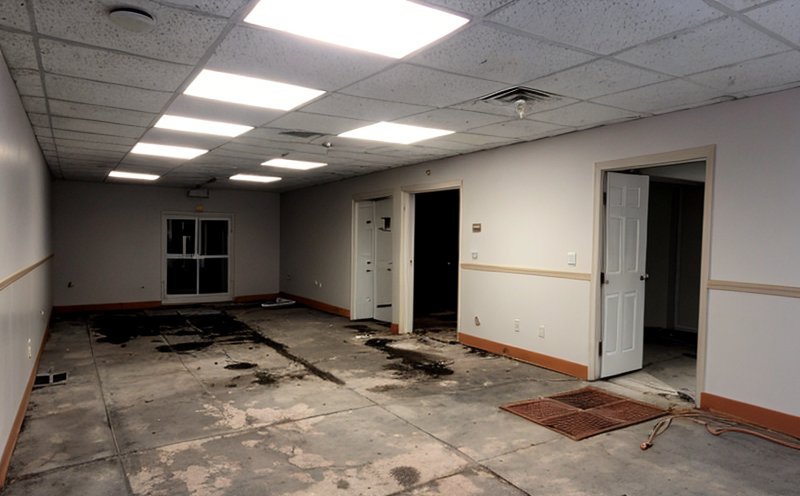Thermal imaging building inspection
The use of thermal imaging technology in building inspections has revolutionized how construction professionals identify and address issues that can affect a structure's performance. This non-invasive method allows for the detection of temperature variations within buildings, which can indicate potential problems such as insulation deficiencies, structural weaknesses, moisture intrusion, and energy inefficiencies.
Thermal imaging provides insights into areas where traditional visual inspections might overlook hidden defects. By capturing infrared images, this technology enables detailed assessments that go beyond what the naked eye can see. This is particularly valuable for quality managers and compliance officers who need to ensure buildings meet safety standards and operational efficiency benchmarks.
The process involves the use of a thermal camera capable of detecting temperature differences as small as 0.1°C. These cameras are sensitive enough to highlight even minor variations in heat distribution, which can be indicative of significant underlying issues. The technology is especially useful for identifying areas with higher than expected temperatures, such as cold bridging or heat loss points.
Once the thermal images have been captured, they are analyzed by experts who interpret the data and provide actionable insights. This analysis helps in diagnosing specific problems and determining appropriate remediation strategies. For R&D engineers involved in building design and development, this service offers a valuable tool for refining construction practices and improving product performance.
Thermal imaging is also crucial for procurement teams as it aids in selecting materials that are not only environmentally friendly but also ensure long-term durability and energy efficiency. By identifying potential issues early on, thermal imaging helps prevent costly repairs and ensures compliance with building codes and regulations.
The scope of this service extends to various construction projects including residential developments, commercial buildings, industrial facilities, and public infrastructure. It is particularly beneficial for large-scale inspections where a comprehensive overview is required. This technology can be used in conjunction with other testing methods to provide a holistic approach to quality assurance.
- Non-invasive assessment of building components
- Detection of hidden defects such as insulation gaps and moisture intrusion
- Identification of areas prone to energy inefficiencies
- Early detection of structural weaknesses or cold bridging
- Evaluation of the performance of installed systems like HVAC, plumbing, and electrical installations
The accuracy and reliability of thermal imaging make it an indispensable tool for quality managers and compliance officers. It ensures that buildings are not only constructed to meet current standards but also designed with future needs in mind.
Eurolab Advantages
Eurolab stands out in the field of thermal imaging building inspections due to its comprehensive approach and state-of-the-art technology. Our team of experts is dedicated to providing accurate, reliable, and timely results that meet or exceed international standards such as ISO 14067 for energy performance.
We ensure that all our inspections are conducted in compliance with relevant regulations and codes, including ASHRAE and BPI guidelines. This commitment to quality and adherence to best practices makes Eurolab a trusted partner for construction professionals. Our advanced thermal cameras and experienced technicians guarantee precise results every time.
In addition to technical excellence, we offer personalized service tailored to the specific needs of each client. Whether you are planning new developments or maintaining existing assets, Eurolab is here to provide expert advice and support throughout the process.
Competitive Advantage and Market Impact
Eurolab's leadership in thermal imaging building inspections is driven by our unwavering commitment to innovation and precision. By leveraging cutting-edge technology and experienced personnel, we set a new benchmark for quality and reliability in this field.
Our ability to provide accurate assessments early in the project lifecycle allows clients to make informed decisions that can significantly impact cost savings and operational efficiency. This foresight contributes to our competitive advantage by ensuring that buildings are not only constructed but also operated at peak performance levels.
The market for thermal imaging services is growing rapidly, driven by increased awareness of energy efficiency and sustainability practices in the construction industry. Eurolab's expertise in this area positions us as leaders who can help drive these trends forward. Our service plays a crucial role in promoting sustainable development and compliance with global environmental standards.
By offering a comprehensive suite of thermal imaging inspections, we cater to a wide range of clients including architects, contractors, property developers, and facility managers. This diverse client base ensures that Eurolab remains at the forefront of technological advancements and industry best practices.





